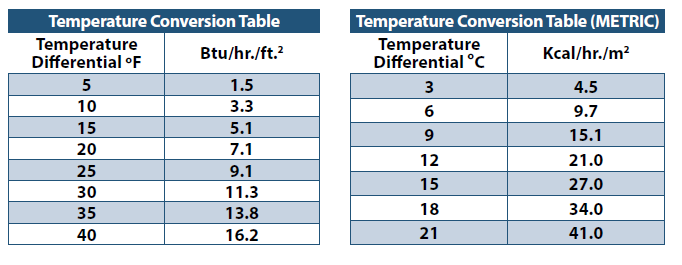With the hot summer months upon us, elevated temperatures can cause shutdowns and interference with electrical systems. For every 10 deg. C rise above the operational temperature, the life of an electrical component is cut in half. With Freon-based coolers, higher ambient conditions make them less effective; and opening the electrical panel to have a fan blow inside creates a dangerous hazard as well as blowing hot, humid, dirty air inside the panel. To reduce loss in production and premature equipment failures, it is important to keep the electrical mechanisms cool. The EXAIR Cabinet Cooler Systems are designed to do just that.To find the correct type and size, we need some information about your electrical panel. EXAIR makes it easy with the Cabinet Cooler Sizing Guide. This sheet goes over the important details to find heat loads, proper NEMA type, and options for easy installation. The EXAIR Cabinet Coolers range from 275 BTU/hr (69 Kcal/hr) to 5,600 BTU/hr (1,411 Kcal/hr) in cooling capacities. And with the filled-out form, we can make sure that the correct model is recommended. In this blog, I will cover a section of the sizing guide, the heat loads.
To properly cool, we need to calculate how much heat is being generated. Heat loads come from three main areas; internal, external and solar. Here are some methods to find the information needed for heat load calculations.
Internal Heat Load: The internal load is the heat generated from inside the electrical panel. This heat is produced from the inefficiencies of the electrical devices. There are three ways that we can figure the internal heat load.
Step A: The simplest way is by hanging a piece of metal like a washer inside the panel for about 15 minutes. We can get an average temperature inside. The best place for the washer will be toward the top half of the panel, as heat rises. In the sizing guide, you can mark the temperature next to “Internal temperature now”.
Step B: if you know the electrical components inside that generate heat, a list can be made with volt/amp ratings, or watts. This is very useful for new panels. The major devices would be VFD (Variable Frequency Drives), power supplies, UPS, transformers, thyristors, etc. We can calculate the inefficiency of the electrical components which will give us the internal heat load.
Step C: If you know the amount of power going into the panel, and the amount of power leaving the panel, the difference will tell us the amount of power that remains for the electrical components. We can take a 5% average as the heat loss.
External Heat Load: The external heat load is attributed to the environment surrounding the electrical panels. This is a standard temperature reading in oF or oC. Only with Step A above, we will need to know the external temperature at the time that you measured the internal heat measurement. This needs to be placed in “External Temperature Now”. The difference to the internal temperature will give us the heat load per square feet (square meter). Reference chart below. We will also need to know the highest external temperature that the panel will see. So, during the hottest day of the hottest month, the EXAIR Cabinet Cooler will still be able to keep your electronics cool and operational.

Solar Heat Load: The solar heat is only needed if the panel is located outside without cover and exposed to sunlight. For this type of heat load, we will need to know the color of the electrical panel. Lighter colors will not absorb as much heat as darker colors.
Because there is so much information that is critical for proper sizing, the Cabinet Cooler Sizing Guide is the best tool to use to facilitate the calculations. I gave examples above to find different ways to get the proper information. Electrical shutdowns are expensive and annoying. If you have interruptions from high internal temperatures, EXAIR Cabinet Coolers are a great solution. They can be installed quickly and easily. With no moving parts or costly preventative maintenance needed, they can run for decades in keeping your electronics cool. For our U.S. and Canadian customers, you will receive an AC Sensor for free, a $58.00 value, as a promotional item from now until the end of August 2020 with qualified purchases. How can you not give them a try? If you have any questions about Cabinet Coolers or the Sizing Guide, you can contact an Application Engineer at Vivek Engineers.
Vivek Engineers #22, 1st Floor, 1st Cross, Adj. to IIMB Compound, Bilekahalli Indl. Area, Bannerghatta Road, Bangalore - 560 076 Ph : 080 - 2648 1309, 4170 1145. Mob : | |||||







No comments:
Post a Comment